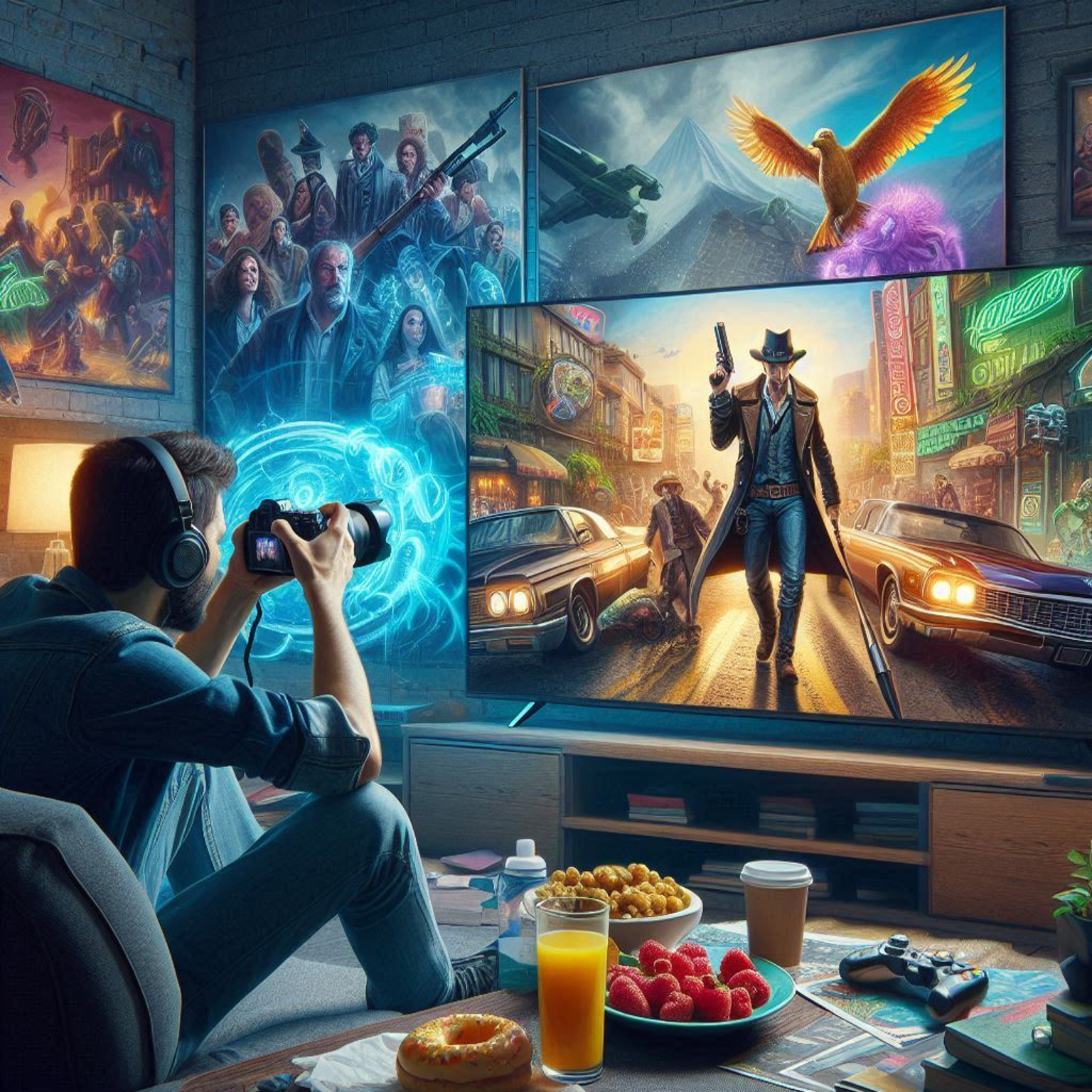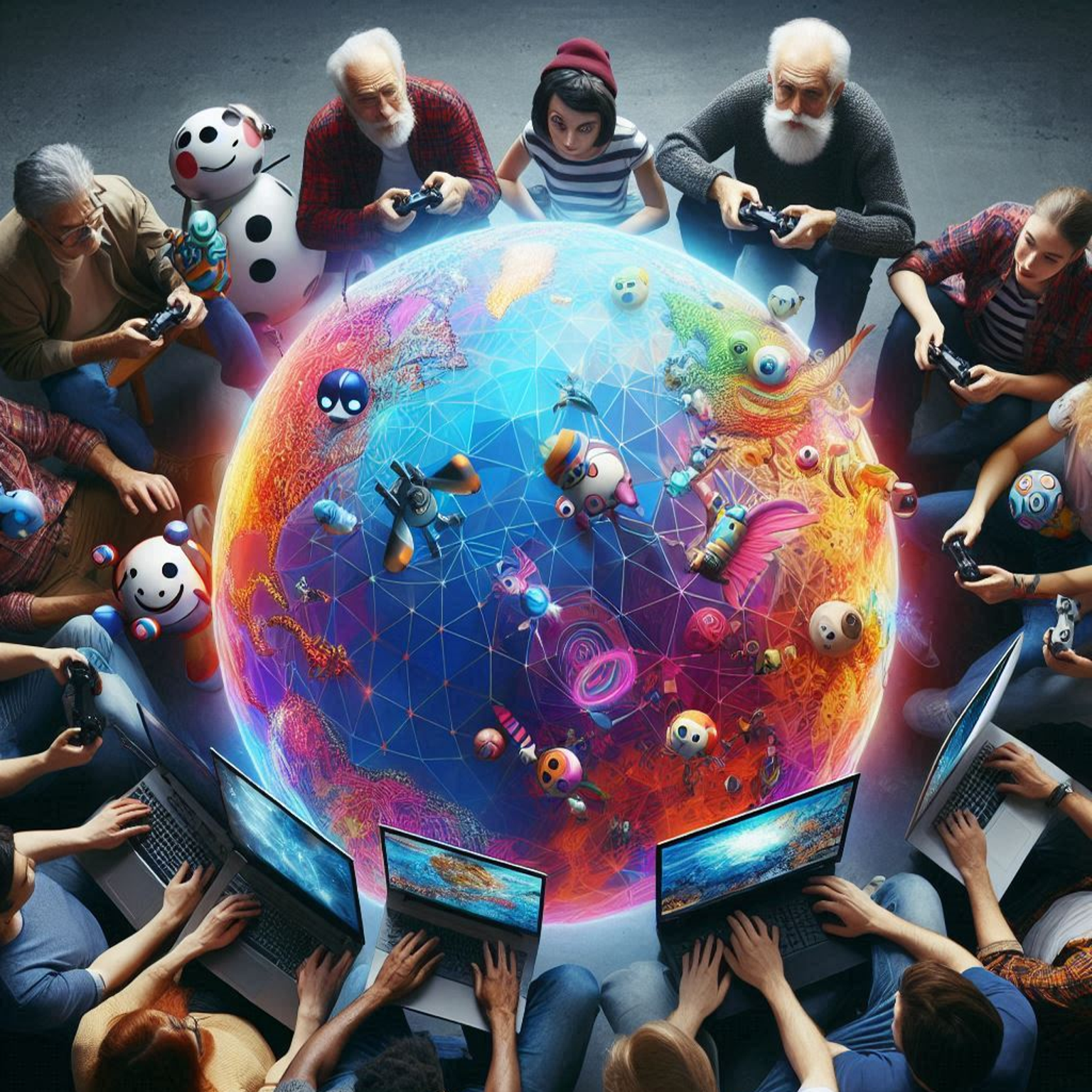Gaming started as a small hobby for some people but has grown into a huge part of our culture today. A lot of people play games on their computers, consoles, and phones. This change from being just a niche interest to a big part of everyday life is really interesting. Let’s explore how this happened.
First, we should understand what some terms mean. ‘Niche’ refers to a small, specialized market or interest. In the beginning, gaming was for a select few who loved it, often seen as something weird or childish. ‘Mainstream’ means something that is widely accepted and popular among many people. Over time, games became popular to the point where everyone—from kids to adults—could enjoy them.
A big part of this change is technology. With better computers and the internet, games became more accessible. Now, people can play with friends around the world without being in the same place. Also, games started telling amazing stories and offering great graphics, making them more appealing to a wider audience.
Another important factor is the rise of streaming. Platforms like Twitch allowed gamers to show their skills to an audience. Many people now watch others play games, which makes gaming more fun and lively. These streamers often have big fanbases and even make money from their content.
Today, gaming includes lots of genres like action, adventure, and role-playing games. This diversity means that there really is something for everyone. Whether you enjoy solving puzzles, going on adventures, or competing with friends, there’s a game you will love.
In conclusion, gaming has changed a lot from being just a small hobby to becoming a huge part of popular culture. With technology improving and more ways to enjoy games, it will continue to grow in the future. Who knows what amazing things we will see in gaming next?
Understanding the Gaming Revolution
Over the past few decades, gaming has transformed from a niche hobby into a major cultural force. This shift has not only changed the way people play games but also how they perceive them. This article will explore the journey of gaming from a small subculture to a dominant aspect of modern entertainment.
The Early Days of Gaming
In the beginning, games were created primarily for arcades and home consoles. The first video game, Space Invaders, released in 1978, marked the start of a new era. Back then, gaming was mostly seen as a child’s activity. It lacked recognition and respect in society.
Key Terms:
- Niche: A specialized segment of the market for a particular kind of product or service.
- Mainstream: Ideas, attitudes, or activities that are shared by the majority of people.
- Cultural Phenomenon: A trend or event that gains popularity within a culture.
The Rise of Gaming Culture
As technology advanced and the internet became widely accessible, gaming began to evolve. The launch of the PlayStation in 1994 brought 3D graphics and more immersive experiences. With the release of popular titles like Final Fantasy VII, gaming began to attract a wider audience.
“Gaming has become a legitimate form of entertainment, comparable to movies and music.”
Community and Connectivity
Online gaming and social media platforms enabled players to connect with each other. Multiplayer games like World of Warcraft allowed people to build communities, share strategies, and compete. This sense of belonging helped to legitimize gaming as more than just a pastime.
The Impact of Streaming and Esports
The rise of platforms like Twitch has turned gaming into a spectator sport. People can watch others play games, participate in tournaments, and even earn money. The booming esports industry draws huge crowds, with events filling stadiums.
| 2000 | Launch of eSports tournaments | Introducing competitive gaming on a large scale |
| 2010 | Rise of Twitch streaming | Connecting players and audiences globally |
| 2020 | Global pandemic | Surge in online gaming popularity |
“Esports has grown into a multi-billion dollar industry, shaping the future of entertainment.”
Influence of Gaming on Culture
Gaming is not just about playing anymore; it has incorporated elements of storytelling, art, and music. Popular franchises like The Legend of Zelda and Call of Duty have become cultural icons. They are referenced in movies, TV shows, and even politics.
Future of Gaming
As technology continues to advance, virtual reality (VR) and augmented reality (AR) are set to take gaming to new heights. Players can expect more immersive experiences that blend the digital world with reality.
Addressing Concerns
Despite its popularity, gaming faces challenges, such as concerns about addiction and its impact on social skills. However, many argue that gaming can also promote problem-solving skills and creativity.
“Games can foster teamwork and strategy, skills that are crucial in today’s digital world.”
Potential Solutions:
- Education: Incorporating gaming into education can enhance learning.
- Balance: Encouraging moderation in gaming habits.
- Research: More studies to understand gaming’s impact on health and society.
Gaming has undergone tremendous changes over the years. From a niche hobby to a major industy, it has influenced culture, forged communities, and opened up new forms of entertainment. As we look ahead, it’s clear that gaming will keep evolving, continuing to shape our society in significant ways.
What are the main factors that contributed to gaming becoming mainstream?
Several factors played a significant role in the transition of gaming from a niche hobby to a mainstream cultural phenomenon. These include advancements in technology, increased internet accessibility, and the rise of mobile gaming. Additionally, the emergence of social media and streaming platforms like Twitch has allowed gamers to share their experiences and connect with larger audiences.
How did the gaming industry evolve over the years?
The gaming industry has undergone tremendous growth since its inception in the 1970s. Initially dominated by arcade games and home consoles, the industry expanded with the introduction of personal computers and online gaming in the 1990s. Today, we see a diverse range of gaming platforms, including mobile devices, VR, and AR technologies, catering to a broad audience and further driving its popularity.
What role does community play in gaming?
The gaming community is crucial to the industry’s success. Gamers often form connections through online forums, social networks, and in-game interactions. This sense of community fosters collaboration, competition, and shared experiences, transforming gaming into a social activity that enhances its appeal and reach.
How has the perception of gamers changed over time?
In the past, gamers were often stereotyped as introverted and socially awkward individuals. However, as gaming has become more mainstream, the perception has shifted dramatically. Today, gamers are recognized as a diverse group of individuals who come from all walks of life, and gaming is celebrated as a legitimate form of entertainment and a competitive sport.
What impact has esports had on gaming’s cultural status?
Esports has played a pivotal role in elevating gaming’s cultural status, turning it into a spectator sport with professional leagues and tournaments that attract millions of viewers. The success of esports has drawn attention from mainstream media, sponsors, and advertisers, further solidifying gaming’s place in contemporary culture.
Are there any negative aspects to the rise of gaming culture?
While the rise of gaming culture has many positive aspects, it also has its challenges. These include issues like addiction, toxic behavior within gaming communities, and the potential for unhealthy competition. Addressing these concerns is essential for fostering a healthy gaming environment.
What does the future hold for gaming as a cultural phenomenon?
The future of gaming looks promising, with technological advancements continually reshaping the landscape. As VR, AR, and AI technologies improve, gaming experiences will likely become even more immersive and interconnected. Additionally, as gaming continues to diversify, we can expect to see new audiences engaging with the medium in innovative ways.



